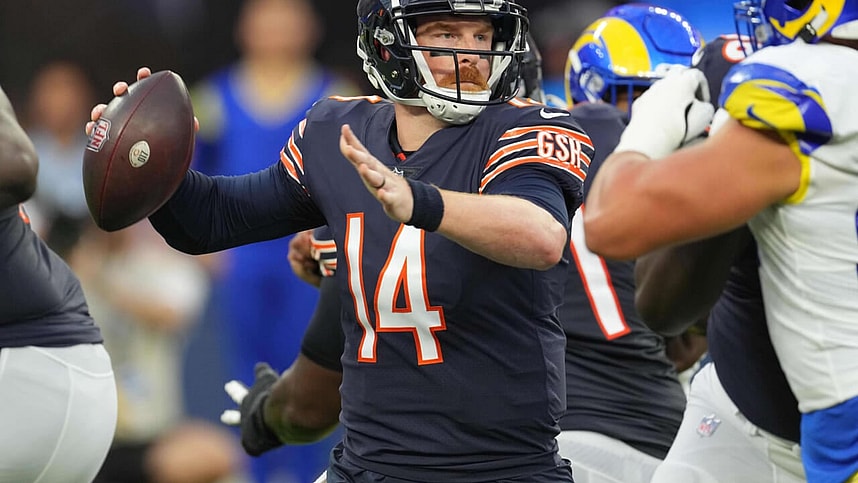
Just over 48 hours have passed since the Chicago Bears‘ week 1 loss to the Los Angeles Rams and with the Bears now looking ahead to week 2, Chicago must figure out what went wrong against the Rams. On the surface, the Bears’ offensive gameplan included short, quick passes designed to get the ball out of quarterback Andy Dalton’s hands in just under 2.5 seconds.
Throughout the evening, the Bears’ offensive line did create solid running lanes for running back David Montgomery. The real reason the Bears left Los Angeles winless is due to the passing attack. Despite throwing 38 times, Dalton completed just 27 passes, with only one pass of 10+ yards being completed.
“I think just the kind of way this defense plays, they limit the big play and they make you just kind of move the ball down the field,” Dalton said via the Bears official YouTube Channel. “I mean you see the drives that we scored on, I mean I don’t know how many plays they were but you had to keep finding ways to get first downs and keep moving the ball all the way down the field. You’re not going to get very many explosives against this team.”
Further dissecting the Rams gameplan, limiting big plays means that wide receiver Darnell Mooney’s speed was accounted for by the Rams defense on every play. Wide receiver Allen Robinson was followed by Rams cornerback Jalen Ramsey on multiple plays, limiting Robinson’s impact.
Essentially, as a result of the Rams deciding to defend the deep passing game, Los Angeles was content with giving the Bears quick, underneath throws because Rams defensive coordinator Raheem Morris knew that players like cornerback Jalen Ramsey were instinctive enough to breakdown what the Bears would be running.
Moving forward, for Chicago’s gameplans to work, the Bears will need to ensure that playcalls don’t look very predictable. Furthermore, allowing Dalton to hit deep passes via play-action could also go a long way towards opening up the Bears’ offense and maximizing talents fo players such as Mooney and Robinson.
More about:Chicago Bears